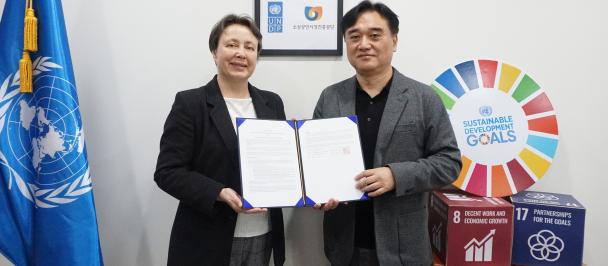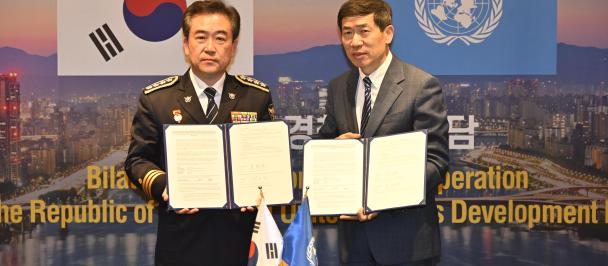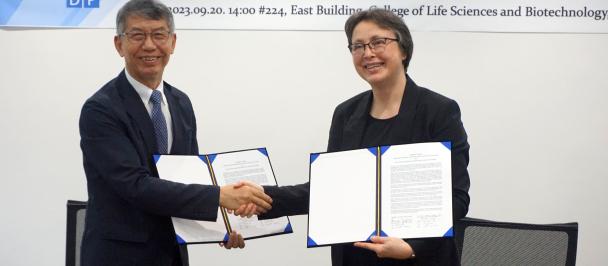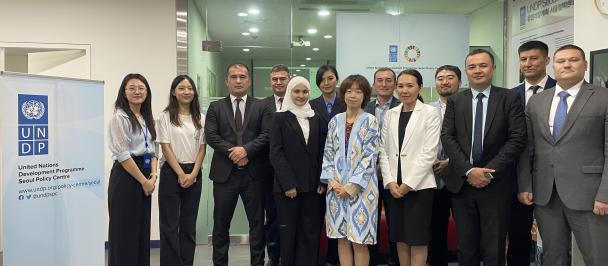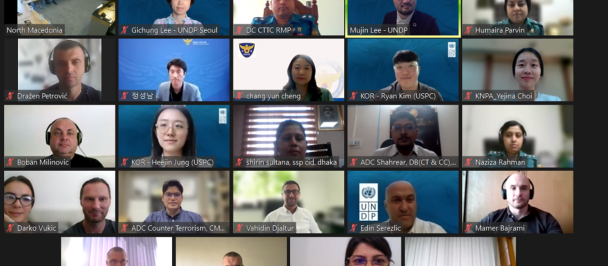UNDP Assistant Administrator exchanges voices with Korea University community on the impact of COVID-19 and Ukraine Crisis on SDGs
May 24, 2022
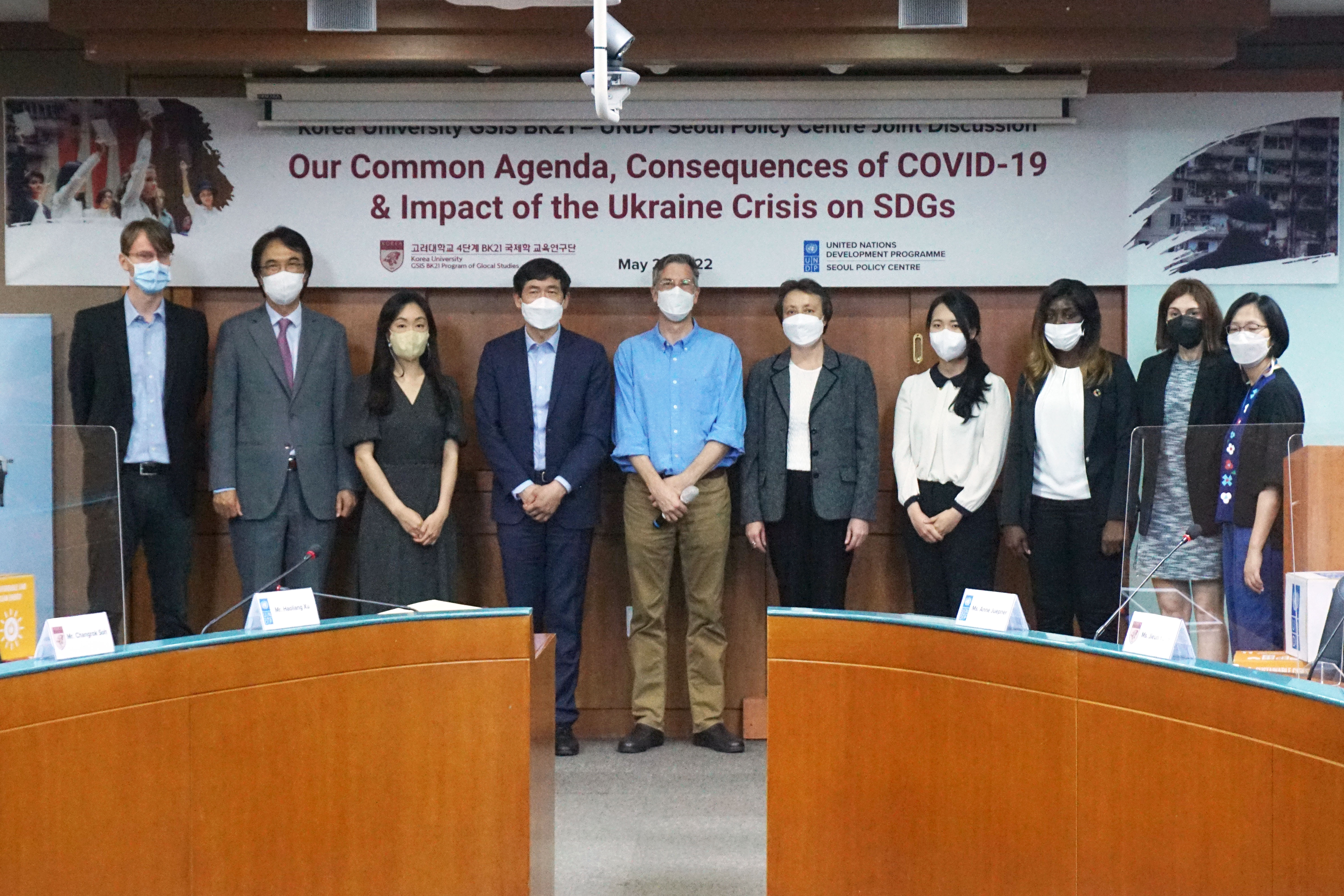
During his visit to the Republic of Korea, Mr. Haoliang Xu, UN Assistant Secretary-General, UNDP Assistant Adminstrator and Director of Bureau for Policy and Programme Support (BPPS), led a Joint Discussion with Korea University (KU) Graduate School of International Studies (GSIS), organized by USPC on 24 May under the theme ‘Our Common Agenda, Consequences of COVID-19 & Impact of Ukraine Crisis on SDGs.’ The event constituted a key programme element of the KU GSIS Brain Korea 21 programme titled ‘Glocal Conflict Management for an Inclusive Society’. This event was a timely opportunity to present UNDP’s work in crises and special development settings as well as receive critical input from youth representatives on the future of global development. Through a lively exchange of voices among more than 50 students and faculty members of KU College of International Studies and GSIS, the joint discussion highlighted the shared focus of KU and UNDP to contribute to a more resilient and inclusive society.
In his keynote address, Mr. Xu elaborated on global crises further exacerbated by the COVID-19 pandemic and the ongoing crisis in Ukraine, including food insecurity, climate emergency, financial distress and inequalities. The impact of these crises is observable through trends such as spikes in food and energy prices, the significant increase in global debt from $226 trillion to a record $303 trillion in 2021, and divergence along many dimensions of well-being and sustainability observed in emerging and developing economies. While discussing ‘Our Common Agenda’, a vision to overcome the ongoing crises through 12 commitments addressing broader concerns of humanity, Mr. Xu emphasized the need to work toward convergence around human well-being within planetary boundaries and strategize the fiscal and financial means to reboot the global economy.
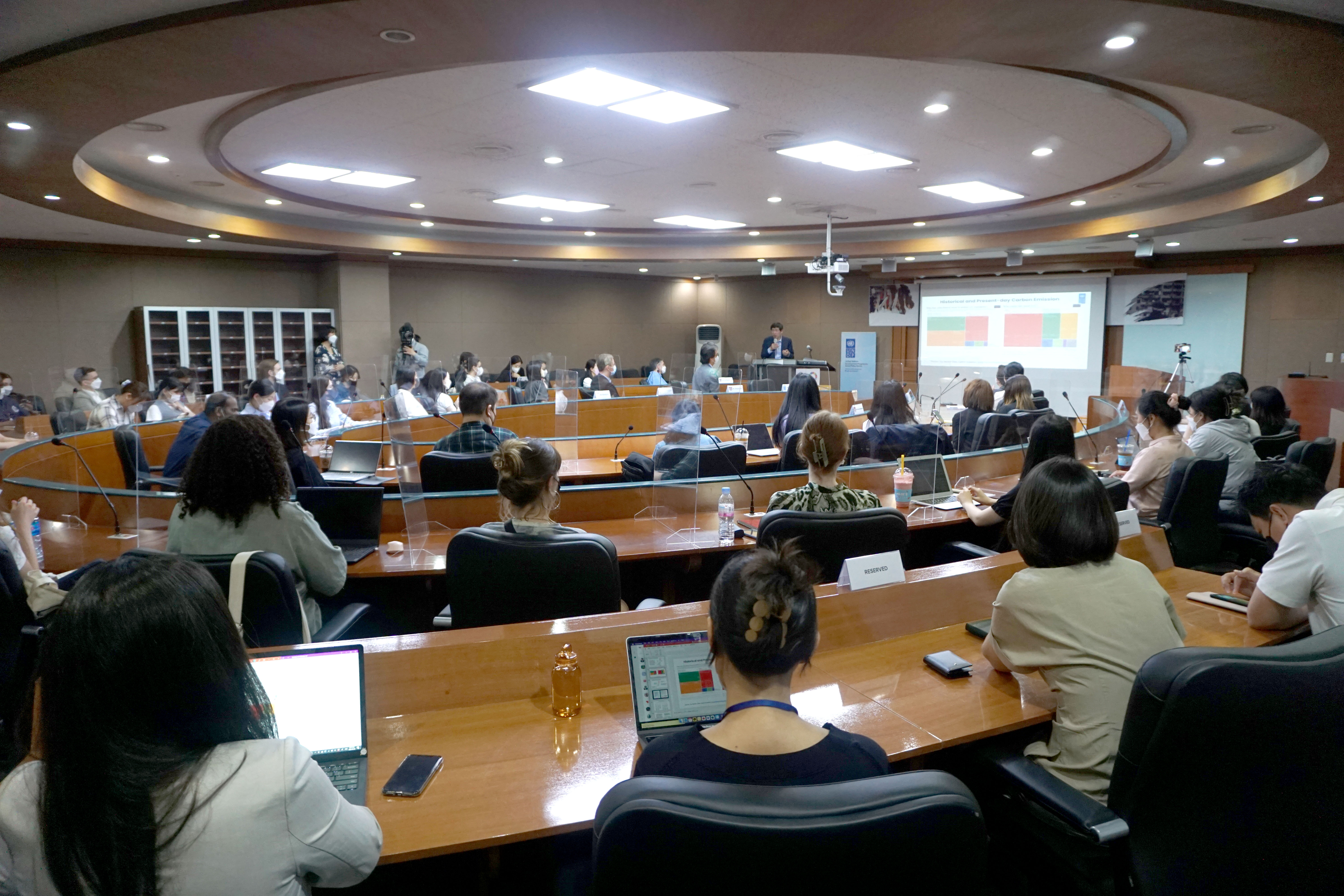
Students of KU GSIS, represented by Ms. Nouha Benjelloun, Ms. Nikoh Cristelle and Ms. Jieun Yoon, addressed the UN Common Agenda from the youth perspective, shedding light on the global interconnectedness of youth on issues of inequality and a shared need for security at both national and international levels. The COVID-19 pandemic intensified existing inequalities with exposed gaps in safety nets especially for the youth, exposing a greater need to create opportunities for youth participation in Our Common Agenda.
Professor Si-Jeong Lim discussed the challenges of strengthening Our Common Agenda, including external threats that can result in in-group solidarity . She highlighted that building organizational trust with youth through inclusive engagement and transparency presents opportunities to work together and generate innovative solutions.
Professor Changrok Soh focused on the impact of new digital technologies on human rights and SDGs, with digital transformation creating new threats that need to be addressed for the effective enjoyment of the benefits of technological advancements. Professor Robert Rudolf delivered on the dilemma of environmental impact on economic growth, focusing on the need to work towards a balance of increasing economic growth while reducing the carbon footprint. Through further research, collaboration and public discourse, it is still possible to look forward to a future where SDGs are achieved.
Joint Discussion Recording
- Keynote address by Mr. Haoliang Xu
- Insights/feedback from students and professors
- Event sketch video

 Locations
Locations